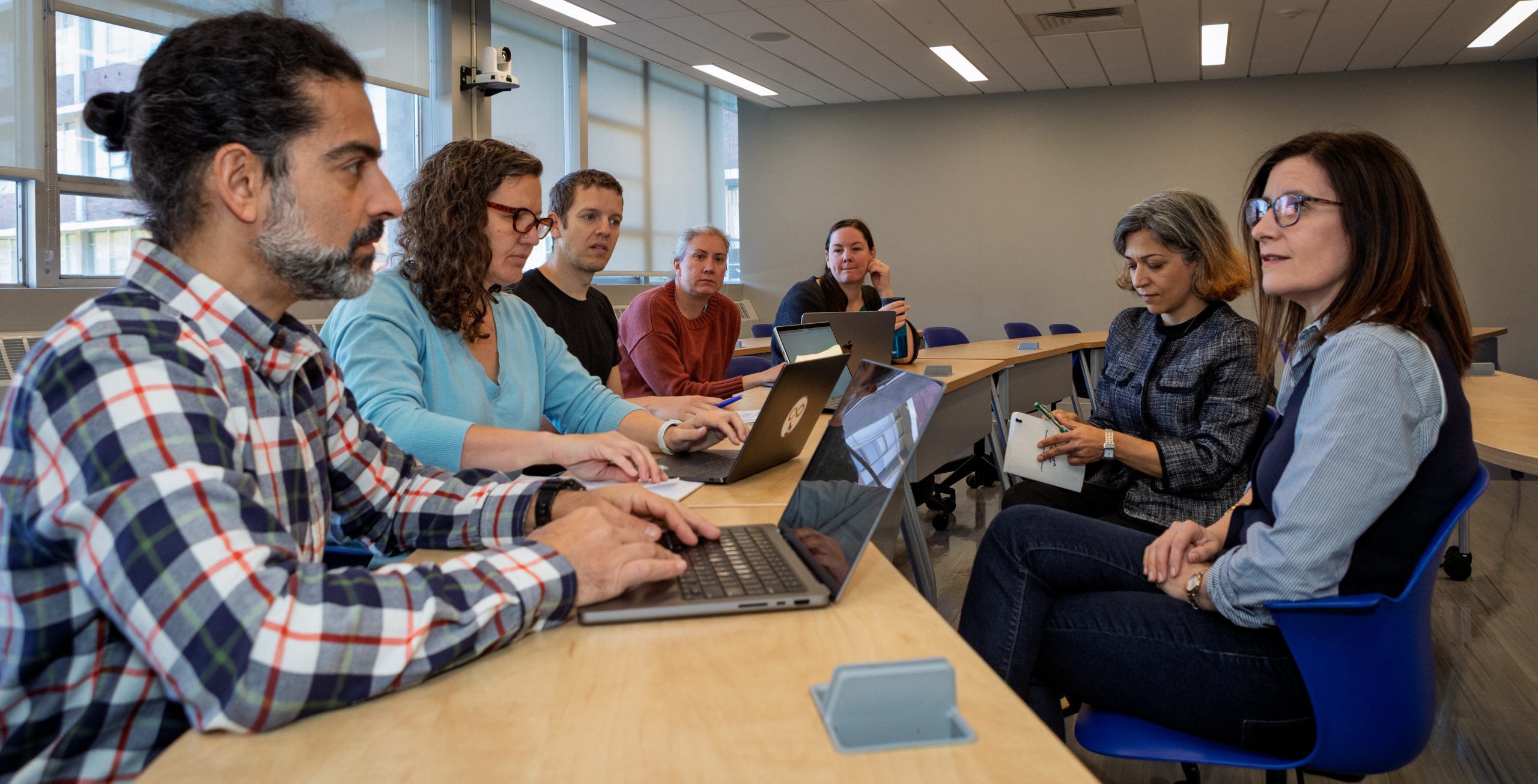Adeline Martinez had just updated her contact lens prescription and started having vision problems. She thought they were not fit correctly so she went back to her doctor, that’s when he did some testing and realized that her eyes and her brain were not communicating correctly. An MRI showed lesions that lead to her diagnosis of Multiple Sclerosis (MS) at just 30 years old.
MS is the most common demyelinating disease of the central nervous system. In this disorder, the immune system attacks the myelin sheath or the cells that produce and maintain it. This causes inflammation and injury to the sheath and ultimately to the nerve fibers that it surrounds. MS can occur at any age, but onset usually occurs around 20 and 40 years of age.
“That was a very rough diagnosis and hard to accept,” says Martinez who has children and didn’t know where the journey was going to take her.

Martinez is a patient of Jaime Imitola, chief of Division of Multiple Sclerosis and Neuroimmunology and director of the UConn Health comprehensive MS center, nationally recognized by the MS society, and she is also an employee at UConn Health who works as a clinical office assistant in the Nephrology Department.
“I adore Dr. Imitola, he is a great listener and very proactive and very reassuring,” says Martinez. “He’s always very positive and it’s like a breath of fresh air when I see him.”
Martinez also has a lot of support from friends and family and her colleagues at UConn Health are amazing, but it’s her colleagues who think she is amazing, coming to work daily no matter how she feels and giving her best to all the patients.
“She comes into work every day and works so hard even when she is not feeling well,” says Lizneirie Rodriguez, clinical office assistant in Pulmonary at UConn Health. “She goes above and beyond for her patients.”
For Martinez, it’s the patients she works with every day that give her perspective and courage. Many have diagnoses and struggles that she feels are worse than hers. They give her strength, and they don’t even realize it.
Martinez feels that she is an advocate for the patients in the clinic, she makes sure when she notices a patient missed their appointment that she immediately calls to check on them and reschedule. So even though she may not be feeling well, sometimes it could be numbness in her hands or memory loss that comes and goes she keeps pushing through because she knows that there are people that need her here. It feels amazing when somebody tells her how much they appreciate her and that her extra efforts made them feel better.
“It makes me happy to help our patients and while I’m fighting through all these symptoms I just keep trying to focus on the positive and on what I’m doing, how I’m changing people’s lives even if it’s in such a small way,” says Martinez.
Martinez has infusions every six months to help with the MS symptoms. At a certain point in her journey, she felt like she was becoming weak, and her legs were getting heavy which was scary she thought that she would end up in a wheelchair, but the infusions have made it so that she feels better and doesn’t experience the leg issues any longer.
“I will say that fatigue is one of my worst culprits. Some days I have all the energy in the world and then some days I feel like I just can’t get through,” says Martinez.
“Before I was diagnosed, I was not even aware of the disease and what it does to people,” says Martinez. “It’s considered an invisible illness, so people think you look fine on the outside they don’t know what you are going through.”
That’s why it is important for Martinez to advocate and raise awareness about MS. This past weekend, she walked in the rain with her team “Team Addy” in the MS Walk in East Hartford.
“It gives you strength when you see the support at the walk and others who are going through the same thing,” says Martinez. “It’s very motivating, you realize, I can do this.”
In addition to walking to raise funds for research and awareness of the disease, Martinez is planning on future research for Latinas.
“Adeline is a very resilient patient, our team is committed to help our patients, with our unique approach,” says Imitola.
Imitola’s team has developed new models of care for MS patients in the real world, especially for the most complex cases, these approaches are published in the MS literature, including ways to improve the onboarding of patients and pragmatic approach to use new and cost-effective ways to use MRI.
“Our team is committed to not only deliver the best care in the state but also training the next generation of MS doctors and research to advance the care of patients, including diverse patients, like Adeline.” says Imitola.
“Even though there is no cure for me, with continued research, there may be one for my children,” says Martinez. “I just try to remain strong and positive; I want to show my children that this isn’t going to bring me down. I have MS but I’m not letting it define me!”



